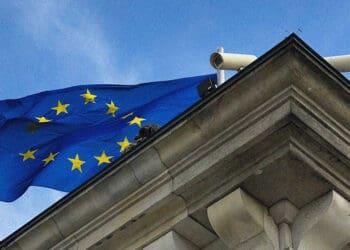Morals and Morale in the Workplace
There’s a degree of trust at every level of an organisation. Depending on size, it may or may not be easy to communicate with every echelon, but senior figures should always be fully aware of what the attitude and outlook is throughout the company and of their function as role models. Strong ties within an organisation, and identification with its standards and values, are as important as good business relations between companies, trading partners and customers.
Compliance with company values and ethics is at the core of every successful business, regardless of whether it’s within the public or private sector. This is the case perhaps more so than ever, when an innocuous news piece can leap from a local newspaper or company intranet to become a national or international news story at the click of a mouse or the “send” of an email. In this way, the modern company needs to think about how its workforce reflects its own standards, ethics and values, but also how it can hone and nurture a culture of ethical practice and accountability.
Whether it’s making sure of your staff’s health and safety, protecting legal rights, or ensuring regulatory compliance, leaders must be aware of what’s happening at all levels of their organisation. By employing compliance solution providers, you can ensure that compliance issues are addressed in ways that will benefit both staff and the board when it comes to delivering awareness, transparency and reliable integrity. As the government has recently been accused of not going far enough in its measures to tackle white-collar crime, there has never been a better time to look at your company’s values and try to mitigate opportunities for misconduct.
Compliance is more than just obeying laws and playing by the rules.
It is also about the degree to which you adopt and live by the standards and values of the organisation. Those companies that are compliant not only adhere to law and order, but also to the organisation’s policies and system of values. These can include the company’s own idea of what it means to work for the company, such as a self-imposed code of conduct or ethics. Noncompliance can have serious implications and consequences at every level of the business. A misdemeanour at one level can have serious repercussions and discredit an entire organisation. However, engendering trust and transparency throughout the company can mitigate and reduce the chances of this occurring.
As a result, compliance has become a key requirement for long-term sustainable success. Reliability, continuity and trust can only exist in an organisation if it is clearly committed to compliance. This is even more essential in an increasingly digital world. With digitised technology making information, tranches of documents and files accessible to all, every employee becomes responsible for protecting data and information. Discretion and moral accountability can only be monitored and encouraged up to a point, and it is up to individuals to recognise where lines are to be drawn when it comes to the sharing of information. The revolution of Industry 4.0, big data and the internet of things mean myriad opportunities and perspectives, but they have also released a slew of data and information density. The use of social media, the merging of private and professional life and trends such as bring your own device (BYOD) complicate the overall view and control of sensitive information and data. Now the lines are often so blurred between work and private life as to be indiscernible.
And legislation seeks to keep up with these trends. Next year the General Data Protection Regulation (GDPR) will come into effect. If a company has not prepared its employees to navigate the new regulations regarding personal and sensitive data, company property and consent, for example, it will have in some way neglected its duty of care to the employee, who could find themselves in the middle of legal consequences for mishandling data under the new regime.
In a perfect world, guiding principles and exemplary behaviour should always be the paradigm for any employee, starting with the leaders. But in the real world interacting with a virtual one, this is not always straightforward. Protecting sensitive information, complying with data privacy laws and protecting knowledge while also being flexible enough to be competitive and successful, has become a cornerstone of every organisation.
Though technical measures are important components, human error and carelessness are the most common causes of data and information leaks and violations. The reasons are often associated with insufficient information, a low level of awareness and simply a lack of adequate training. All these things can be rectified, but it’s about how companies of all sizes understand and address this.
On a wider and equally – if not more – damaging scale, corruption falls into the parameters of compliance, too. Corruption has many faces, and it is a global problem, from bribery and kickbacks to accepting gifts, benefits in kind and other tokens or favours, as well as financial “incentives.” Raising awareness of these issues with staff will minimise and protect against outside influence. In the modern world, with instantaneous global telecommunications, a company is only as strong – or as weak – as its employees and their own knowledge, integrity and ethics.



 Michael Kayser, Managing Director, Idox Compliance, is a seasoned professional with over a decade’s experience in high-stakes, mission-critical, technology-based services. He has been a member of technical committee ISO/PC271 and is currently part of the German delegation for the development of the new ISO project regarding governance. His credo is the provision of affordable, adequate and sustainable compliances services and measures.
Michael Kayser, Managing Director, Idox Compliance, is a seasoned professional with over a decade’s experience in high-stakes, mission-critical, technology-based services. He has been a member of technical committee ISO/PC271 and is currently part of the German delegation for the development of the new ISO project regarding governance. His credo is the provision of affordable, adequate and sustainable compliances services and measures.








